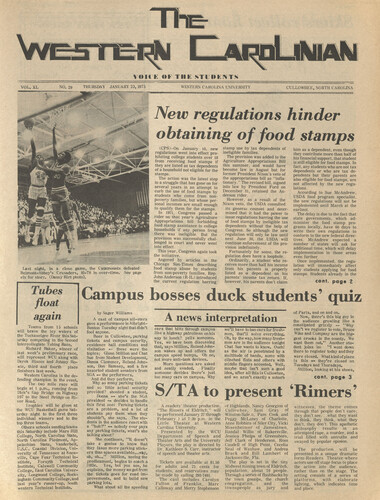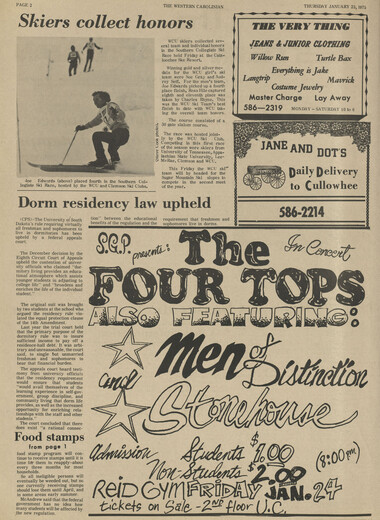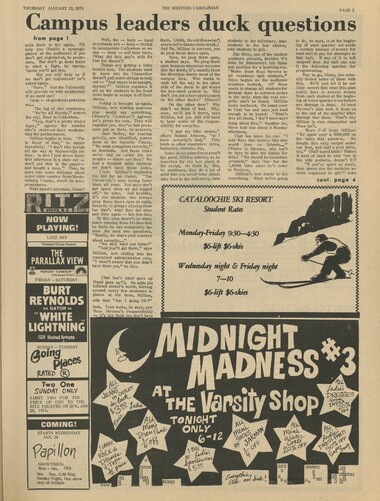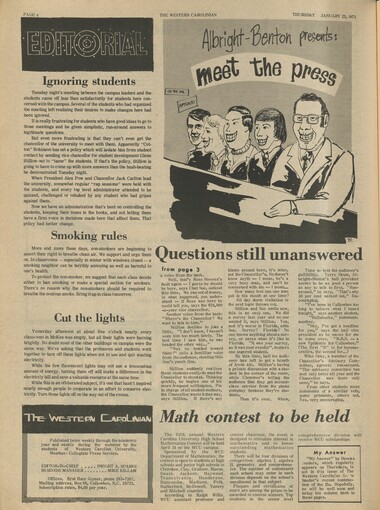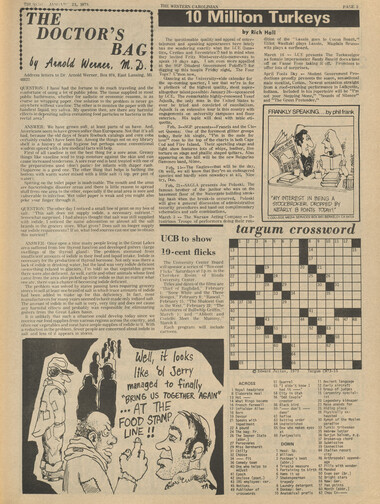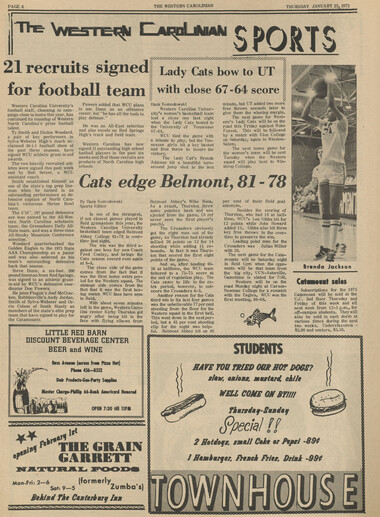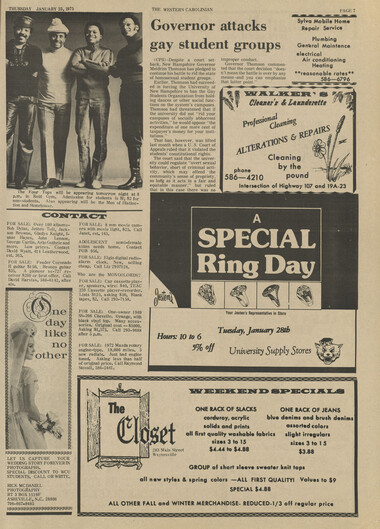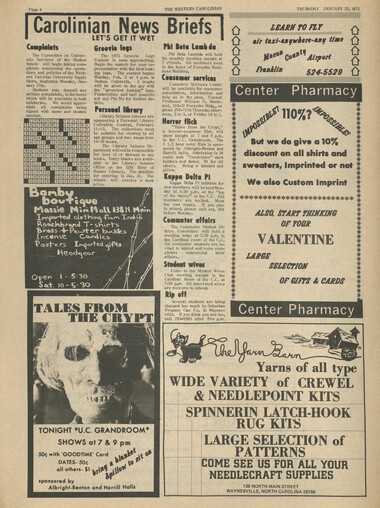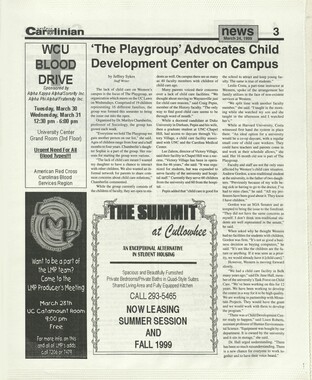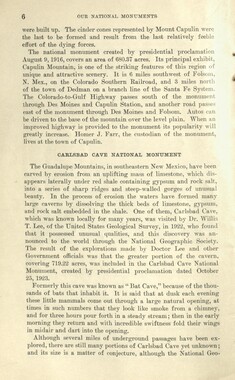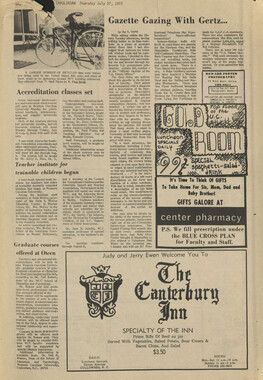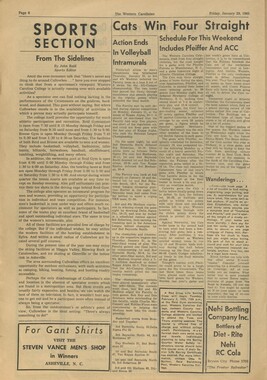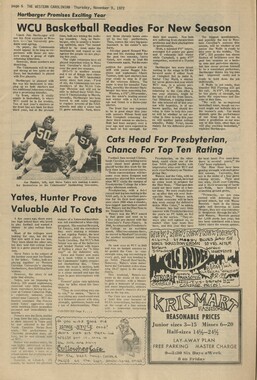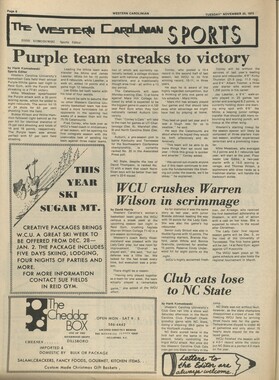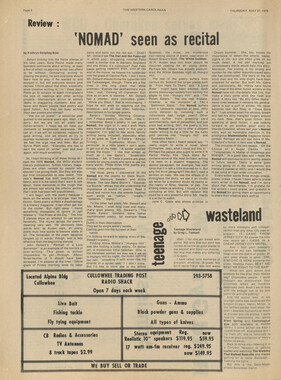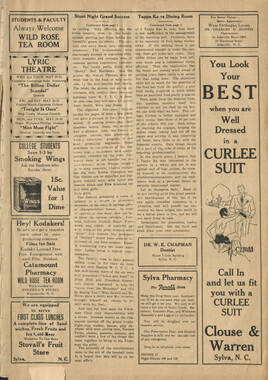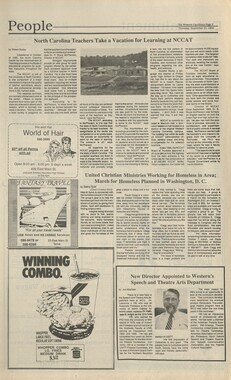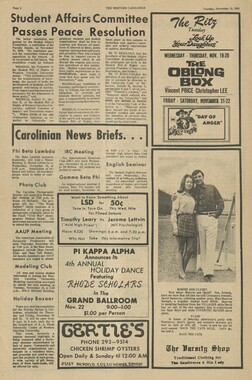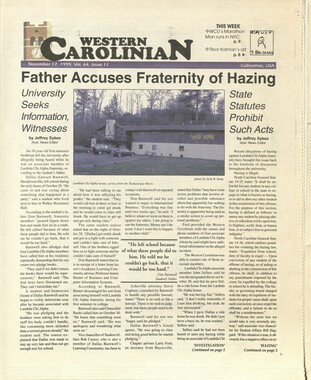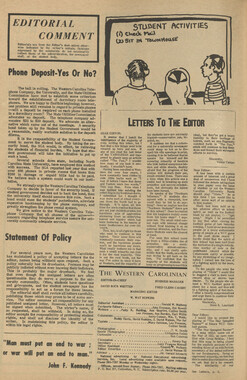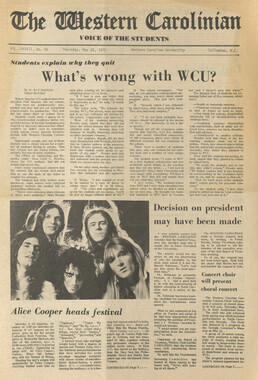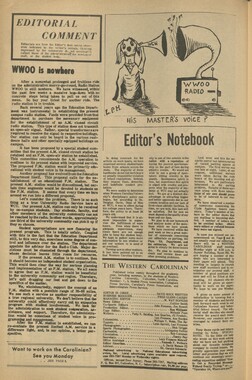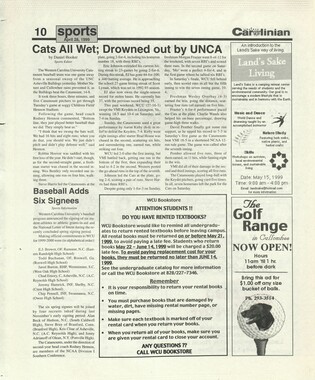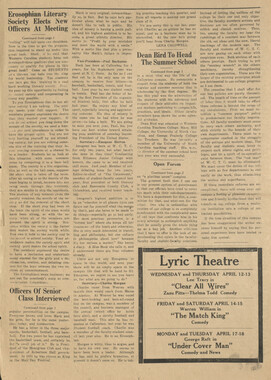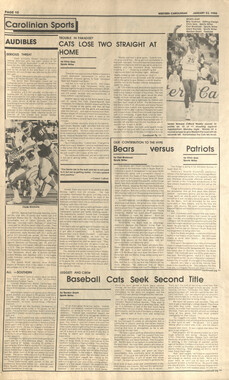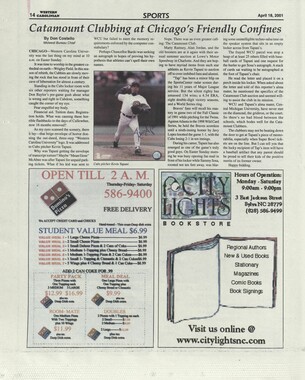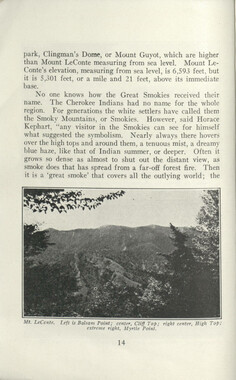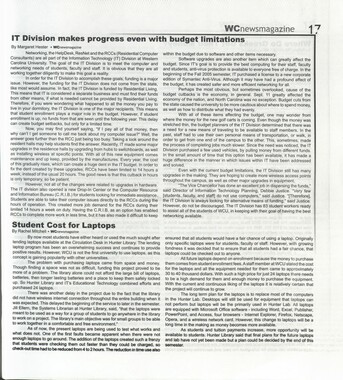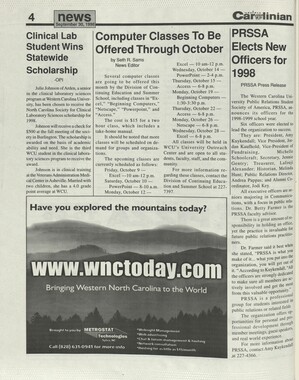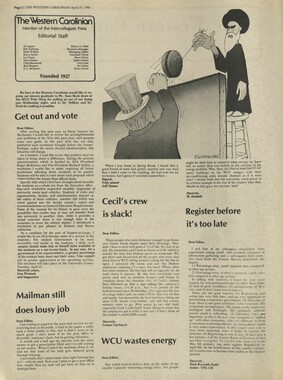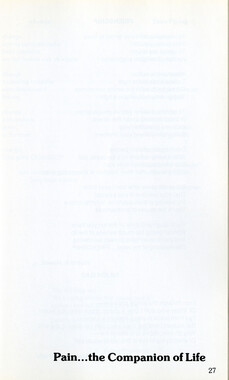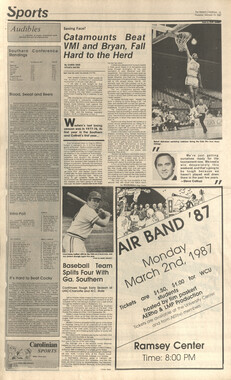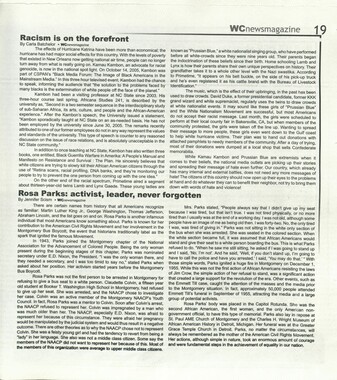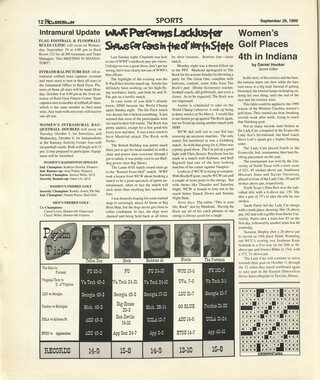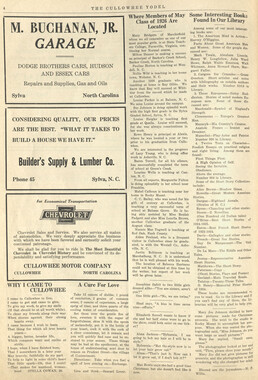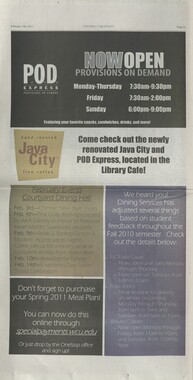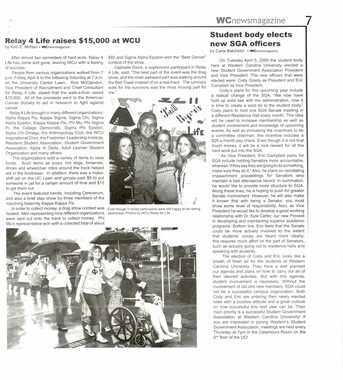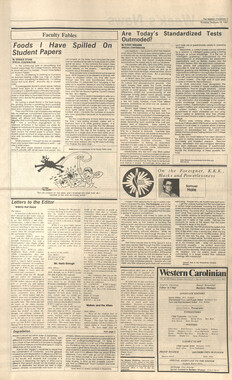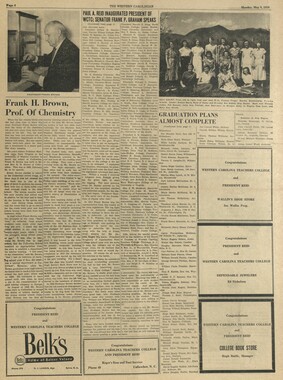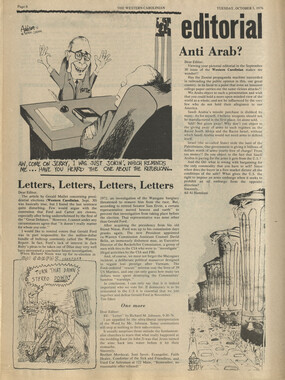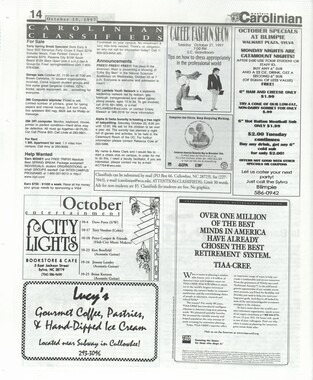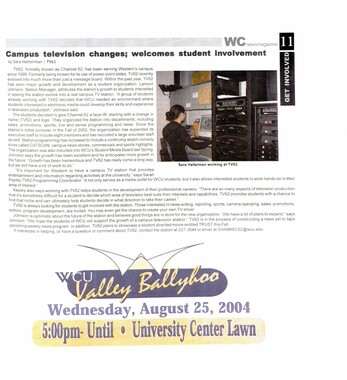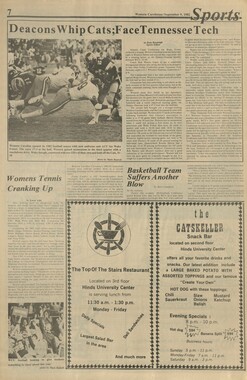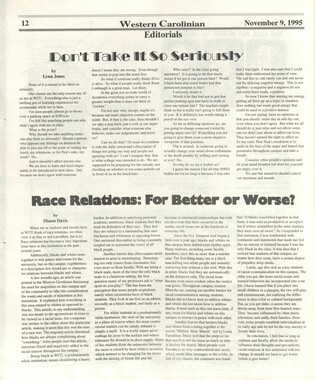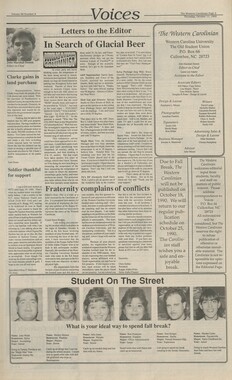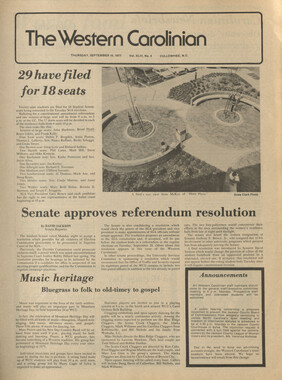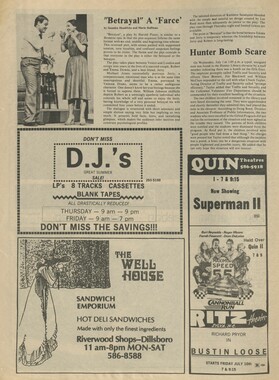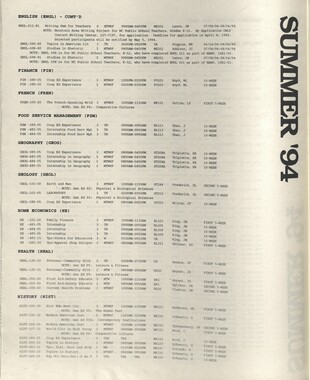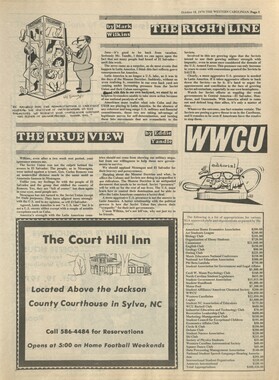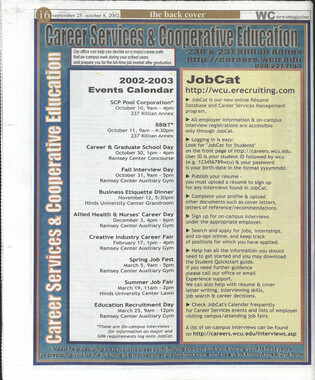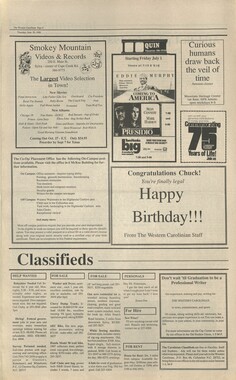Western Carolina University (21)
View all
- Canton Champion Fibre Company (2308)
- Cherokee Traditions (291)
- Civil War in Southern Appalachia (165)
- Craft Revival (1942)
- George Masa Collection (137)
- Great Smoky Mountains - A Park for America (2900)
- Highlights from Western Carolina University (422)
- Horace Kephart (973)
- Journeys Through Jackson (159)
- LGBTQIA+ Archive of Jackson County (85)
- Oral Histories of Western North Carolina (316)
- Picturing Appalachia (6797)
- Stories of Mountain Folk (413)
- Travel Western North Carolina (153)
- Western Carolina University Fine Art Museum Vitreograph Collection (129)
- Western Carolina University Herbarium (92)
- Western Carolina University: Making Memories (738)
- Western Carolina University Publications (2491)
- Western Carolina University Restricted Electronic Theses and Dissertations (146)
- Western North Carolina Regional Maps (71)
- World War II in Southern Appalachia (131)
University of North Carolina Asheville (6)
View all
- Allanstand Cottage Industries (62)
- Appalachian National Park Association (53)
- Bennett, Kelly, 1890-1974 (1463)
- Berry, Walter (76)
- Brasstown Carvers (40)
- Carver, George Washington, 1864?-1943 (26)
- Cathey, Joseph, 1803-1874 (1)
- Champion Fibre Company (233)
- Champion Paper and Fibre Company (297)
- Cherokee Indian Fair Association (16)
- Cherokee Language Program (22)
- Crowe, Amanda (40)
- Edmonston, Thomas Benton, 1842-1907 (7)
- Ensley, A. L. (Abraham Lincoln), 1865-1948 (275)
- Fromer, Irving Rhodes, 1913-1994 (70)
- George Butz (BFS 1907) (46)
- Goodrich, Frances Louisa (120)
- Grant, George Alexander, 1891-1964 (96)
- Heard, Marian Gladys (60)
- Kephart, Calvin, 1883-1969 (15)
- Kephart, Horace, 1862-1931 (313)
- Kephart, Laura, 1862-1954 (67)
- Laney, Gideon Thomas, 1889-1976 (439)
- Masa, George, 1881-1933 (61)
- McElhinney, William Julian, 1896-1953 (44)
- Niggli, Josephina, 1910-1983 (10)
- North Carolina Park Commission (105)
- Osborne, Kezia Stradley (9)
- Owens, Samuel Robert, 1918-1995 (11)
- Penland Weavers and Potters (36)
- Roberts, Vivienne (15)
- Roth, Albert, 1890-1974 (142)
- Schenck, Carl Alwin, 1868-1955 (1)
- Sherrill's Photography Studio (2565)
- Southern Highland Handicraft Guild (127)
- Southern Highlanders, Inc. (71)
- Stalcup, Jesse Bryson (46)
- Stearns, I. K. (213)
- Thompson, James Edward, 1880-1976 (226)
- United States. Indian Arts and Crafts Board (130)
- USFS (683)
- Vance, Zebulon Baird, 1830-1894 (1)
- Weaver, Zebulon, 1872-1948 (58)
- Western Carolina College (230)
- Western Carolina Teachers College (282)
- Western Carolina University (2008)
- Western Carolina University. Mountain Heritage Center (18)
- Whitman, Walt, 1819-1892 (10)
- Wilburn, Hiram Coleman, 1880-1967 (73)
- Williams, Isadora (3)
- Cain, Doreyl Ammons (0)
- Crittenden, Lorraine (0)
- Rhodes, Judy (0)
- Smith, Edward Clark (0)
- Appalachian Region, Southern (2959)
- Asheville (N.C.) (1944)
- Avery County (N.C.) (26)
- Blount County (Tenn.) (195)
- Buncombe County (N.C.) (1680)
- Cherokee County (N.C.) (283)
- Clay County (N.C.) (556)
- Graham County (N.C.) (238)
- Great Smoky Mountains National Park (N.C. and Tenn.) (525)
- Haywood County (N.C.) (3573)
- Henderson County (N.C.) (70)
- Jackson County (N.C.) (4919)
- Knox County (Tenn.) (35)
- Knoxville (Tenn.) (13)
- Lake Santeetlah (N.C.) (10)
- Macon County (N.C.) (421)
- Madison County (N.C.) (216)
- McDowell County (N.C.) (39)
- Mitchell County (N.C.) (135)
- Polk County (N.C.) (35)
- Qualla Boundary (982)
- Rutherford County (N.C.) (78)
- Swain County (N.C.) (2185)
- Transylvania County (N.C.) (270)
- Watauga County (N.C.) (12)
- Waynesville (N.C.) (86)
- Yancey County (N.C.) (72)
- Aerial Photographs (3)
- Aerial Views (60)
- Albums (books) (4)
- Articles (1)
- Artifacts (object Genre) (228)
- Bibliographies (1)
- Biography (general Genre) (2)
- Cards (information Artifacts) (38)
- Clippings (information Artifacts) (192)
- Copybooks (instructional Materials) (3)
- Crafts (art Genres) (622)
- Depictions (visual Works) (21)
- Design Drawings (1)
- Digital Moving Image Formats (2)
- Drawings (visual Works) (185)
- Envelopes (101)
- Exhibitions (events) (1)
- Facsimiles (reproductions) (1)
- Fiction (general Genre) (4)
- Financial Records (12)
- Fliers (printed Matter) (67)
- Glass Plate Negatives (381)
- Guidebooks (2)
- Internegatives (10)
- Interviews (817)
- Land Surveys (102)
- Letters (correspondence) (1045)
- Manuscripts (documents) (618)
- Maps (documents) (177)
- Memorandums (25)
- Minutes (administrative Records) (59)
- Negatives (photographs) (6090)
- Newsletters (1290)
- Newspapers (2)
- Notebooks (8)
- Occupation Currency (1)
- Paintings (visual Works) (1)
- Pen And Ink Drawings (1)
- Periodicals (193)
- Personal Narratives (10)
- Photographs (12976)
- Plans (maps) (1)
- Poetry (6)
- Portraits (4568)
- Postcards (329)
- Programs (documents) (181)
- Publications (documents) (2444)
- Questionnaires (65)
- Relief Prints (26)
- Sayings (literary Genre) (1)
- Scrapbooks (282)
- Sheet Music (2)
- Slides (photographs) (402)
- Songs (musical Compositions) (2)
- Sound Recordings (796)
- Specimens (92)
- Speeches (documents) (18)
- Tintypes (photographs) (8)
- Transcripts (324)
- Text Messages (0)
- A.L. Ensley Collection (275)
- Appalachian Industrial School Records (7)
- Appalachian National Park Association Records (336)
- Axley-Meroney Collection (2)
- Bayard Wootten Photograph Collection (20)
- Bethel Rural Community Organization Collection (7)
- Blumer Collection (5)
- C.W. Slagle Collection (20)
- Canton Area Historical Museum (2110)
- Carlos C. Campbell Collection (462)
- Cataloochee History Project (64)
- Cherokee Studies Collection (4)
- Daisy Dame Photograph Album (5)
- Daniel Boone VI Collection (1)
- Doris Ulmann Photograph Collection (112)
- Elizabeth H. Lasley Collection (1)
- Elizabeth Woolworth Szold Fleharty Collection (4)
- Frank Fry Collection (95)
- George Masa Collection (173)
- Gideon Laney Collection (452)
- Hazel Scarborough Collection (2)
- Hiram C. Wilburn Papers (28)
- Historic Photographs Collection (236)
- Horace Kephart Collection (861)
- Humbard Collection (33)
- Hunter and Weaver Families Collection (1)
- I. D. Blumenthal Collection (4)
- Isadora Williams Collection (4)
- Jesse Bryson Stalcup Collection (47)
- Jim Thompson Collection (224)
- John B. Battle Collection (7)
- John C. Campbell Folk School Records (80)
- John Parris Collection (6)
- Judaculla Rock project (2)
- Kelly Bennett Collection (1482)
- Love Family Papers (11)
- Major Wiley Parris Civil War Letters (3)
- Map Collection (12)
- McFee-Misemer Civil War Letters (34)
- Mountain Heritage Center Collection (4)
- Norburn - Robertson - Thomson Families Collection (44)
- Pauline Hood Collection (7)
- Pre-Guild Collection (2)
- Qualla Arts and Crafts Mutual Collection (12)
- R.A. Romanes Collection (681)
- Rosser H. Taylor Collection (1)
- Samuel Robert Owens Collection (94)
- Sara Madison Collection (144)
- Sherrill Studio Photo Collection (2558)
- Smoky Mountains Hiking Club Collection (616)
- Stories of Mountain Folk - Radio Programs (374)
- The Reporter, Western Carolina University (510)
- Venoy and Elizabeth Reed Collection (16)
- WCU Gender and Sexuality Oral History Project (32)
- WCU Mountain Heritage Center Oral Histories (25)
- WCU Oral History Collection - Mountain People, Mountain Lives (71)
- WCU Students Newspapers Collection (1923)
- Western North Carolina Tomorrow Black Oral History Project (69)
- William Williams Stringfield Collection (2)
- Zebulon Weaver Collection (109)
- African Americans (390)
- Appalachian Trail (35)
- Artisans (521)
- Cherokee art (84)
- Cherokee artists -- North Carolina (10)
- Cherokee language (21)
- Cherokee pottery (101)
- Cherokee women (208)
- Church buildings (190)
- Civilian Conservation Corps (U.S.) (111)
- College student newspapers and periodicals (2012)
- Dams (108)
- Dance (1023)
- Education (222)
- Floods (63)
- Folk music (1015)
- Forced removal, 1813-1903 (2)
- Forest conservation (220)
- Forests and forestry (1197)
- Gender nonconformity (4)
- Great Smoky Mountains National Park (N.C. and Tenn.) (181)
- Hunting (46)
- Landscape photography (25)
- Logging (119)
- Maps (83)
- Mines and mineral resources (9)
- North Carolina -- Maps (18)
- Paper industry (38)
- Postcards (255)
- Pottery (135)
- Railroad trains (72)
- Rural electrification -- North Carolina, Western (3)
- School integration -- Southern States (2)
- Segregation -- North Carolina, Western (5)
- Slavery (5)
- Sports (452)
- Storytelling (243)
- Waterfalls -- Great Smoky Mountains (N.C. and Tenn.) (66)
- Weaving -- Appalachian Region, Southern (280)
- Wood-carving -- Appalachian Region, Southern (328)
- World War, 1939-1945 (173)
Western Carolinian Volume 40 Number 29
Item
Item’s are ‘child’ level descriptions to ‘parent’ objects, (e.g. one page of a whole book).
-
-
VOICE OF THi: STI Ofc"VTS VOL. XL NO. 29 THURSDAY JANUARY 23, 1975 WESTERN CAROLINA UNIVERSITY CULLOWHEE, NORTH CAROLINA New regulations hinder obtaining of food stamps Last night, in a close game, the Catamounts defeated Belmont-Abbey's Crusaders, 81-78 in over-time. See page six for story. (Danny Hirt photo). Tubes float again (CPS)--On January 10, new regulations went into effect prohibiting college students over 18 from receiving food stamps if they are listed as tax dependents of a household not eligible for the stamps. The action was the latest step in a struggle that has gone on for several years in an attempt to curb the use of food stamps by students who come from non- poverty families, but whose personal incomes are small enough to qualify them for the stamps. In 1971, Congress passed a rider on that year's Agriculture Appropriations bill forbidding food stamp assistance to college households if any person livng there was ineligible. But the provision was successfully challenged in court and never went into effect. This year, Congress again took the initiative. Angered by articles in the Chicago Sun-Times describing food stamp abuse by students from non-poverty families, Rep. John Anderson (R-IL) introduced the current regulation barring stamp use by tax dependents of ineligible families. The provision was added to the Agriculture Appropriations Bill this summer, and would have become law in August but for former President Nixon's veto of the appropriations bill as "inflationary." The revised bill, signed into law by President Ford on December 31, retained the Anderson rider. However, as a result of the Nixon veto, the USDA consulted its general counsel and determined that it had the power to issue regulations barring the use of food stamps by ineligible tax dependents without the help of Congress. So although the new regulation will only be law until next June 30, the USDA will continue enforcement of the provision indefinitely. Fortunately for some, the regulation does have a loophole. Ordinarily, a student who receives more than half his income from his parents is properly listed as -a dependent on his parents' income tax return. If, however, his parents don't claim him as a dependent, even though they contribute more than half of his financial support, that student is still eligible for food stamps. In fact, any students who are not tax dependents or who are tax dependents but their parents are also eligible for food stamps, are not affected by the new regulations. According to Sue McAndrew, USDA food program specialist, the new regulations will not be implemented until March at the earliest. The delay is due to the fact that state governments, which administer the food stamp programs locally, have 60 days to write their own regulations to conform to the new federal directives. Mc Andrew expected a number of states will ask for additional time, which will delay implementation in those areas even further. Once implemented, the regulation will immediately affect only students applying for food stamps. Students already in the cont. page Z Campus bosses duck students' quiz Teams from 15 schools will brave the icy waters of the Tuckaseigee River this Saturday competing in the Second Intercollegiate Tubing Race. Richard Baker, winner of last week's preliminary race, will represent WCU along with Derek Hiscox and Johnny Ho- - wie, third and fourth place finishers last week. Western Carolina is the defending champion in the event. The two mile race will begin at 1 p.m., running from Dick's Gap Bridge on Highway 107 to the Steel Bridge on River Road. Trophies will be given at the WCU Basketball game Saturday night to the first three individual winners and to the top three teams. Others schools sendingfeams this Saturday include Mars Hill College, North Carolina State, North Carolina Piedmont, Appalachian State, Vanderbelt, U.S.C. Coastal Division, University of Tennessee at Knox- ville, Cape Fear Technical Institute, Forsyth Technical Institute, Calswell Community College, East Carolina University, Longwood College, Rockingham Community College, and last year's runner-up, South western Technical Institute. by Sager Williams A cast of campus all-stars gave a performance in Albright- Benton Tuesday night that didn't fool anyone. Beer in Cullowhee, parking tickets and campus security, residence hall conditions and visitation — these were the topics; Glenn Stillion and Chat Sue from Student Development, Donna Clemmer, Roland Johnson, Don Ramsey, and a few assorted student senators from SGA — the performers. And did they perform. Why so many parking tickets and so little actual security provided? shouted a student. Donna — she's the SGA president — decides to handle this first one: Parking tickets are a problem, and a lot of students pay them when they shouldn't, she says. The students in the audience react with a "huh?" ~ nobody ever pays any parking tickets, what's she talking about? She continues, "It doesn't take a genius to know that they issue more parking stickers than spaces available...why, uh, uh..." Stillion, seeing the predicament, begins to coach a little. Yes, but you see, he explains, the money we get from the tickets goes for road improvements, and to build new parking lots. What about all the speeding A news interpretation cars that blitz through campus like a highway patrolman on his way to lunch? yells someone. Yes, we have been discussing that, says Stillion. Roland Johnson wakes up and offers the campus speed bumps. Oh no, not more anti-tank devices. More questions are asked and neatly evaded. Finally someone decides there's just too many cars on campus. Why we'll have to ban cars for freshmen, that'll solve everything. Oh, by the way, how many freshmen are in the audience tonight Chat Sue wants to know. Ouch! as the air is penetrated by a multitude of hands, some with clinched fists and others with middle fingers accented. Well, maybe that isn't such a good idea, after all this is Cullowhee, and we aren't exactly a suburb of Paris, and on and on. Now, there's this big guy in the audience growling like a constipated grizzly — "Why can't we register to vote, Bruce Wike and Company are the biggest crooks in the county. We want them out." Another student joins in: "I went down there to register today and they were closed. What kind of place is this ~ they're closed on Tuesdays and Thursdays, Stillion, looking at his shoes, cont. page 3 S/TA to present 'Rimers' A readers' theater production, "The Rimers of Eldritch," will be performed January 27 through February 1 at 7:30 p.m. in the Little Theater at Western Carolina University. Presented by the WCU Department of Speech and Theater Arts and the University Players, the play is directed by Dr. Kathleen S. Carr, instructor of speech and theater arts. Tickets are available at $1.50 for adults and 75 cents for students, and reservations may be made by calling 293-7491. The cast includes Carolyn Fulton of Franklin, Marc Calloway and Merry Stephenson of Highlands, Nancy Georgion of Cullowhee, Sam Gray of Winston-Sale.n, Pam Cook and Peggy McLaney of Charlotte, Anne Robbins of Siler City, Vicki Misenheimer of Jamestown, Randal Willis of Bakersville, Jessica Phelps of Greensboro, Jeff Clark of Henderson, Ross Caudell of High Point, Cecelia Neal of Waxhaw, and Andrea Brack and Bill Lambert of Jacksonville, Fla. The play is set in the tiny- Midwest mining town of Eldritch, population, about 70 people. Through a series of flashbacks by the town gossips, the church congregation, and the townspeople as jury and witnesses, the theme comes through that people don't care; they don't see. . .what they want to think, they think, what they don't, they don't. This apathetic philosophy results in an attempted rape, a murder, and a trial filled with untruths and swayed by popular opinion. The production will be presented in a unique dramatic form-Readers Theater-where actors use off stage focus to place the action into the audience, rather than on the stage. The setting consists of a series of platforms, with elaborate lighting, which indicates time and place.
Object
Object’s are ‘parent’ level descriptions to ‘children’ items, (e.g. a book with pages).
-
The Western Carolinian is Western Carolina University's student-run newspaper. The paper was published as the Cullowhee Yodel from 1924 to 1931 before changing its name to The Western Carolinian in 1933.
-
